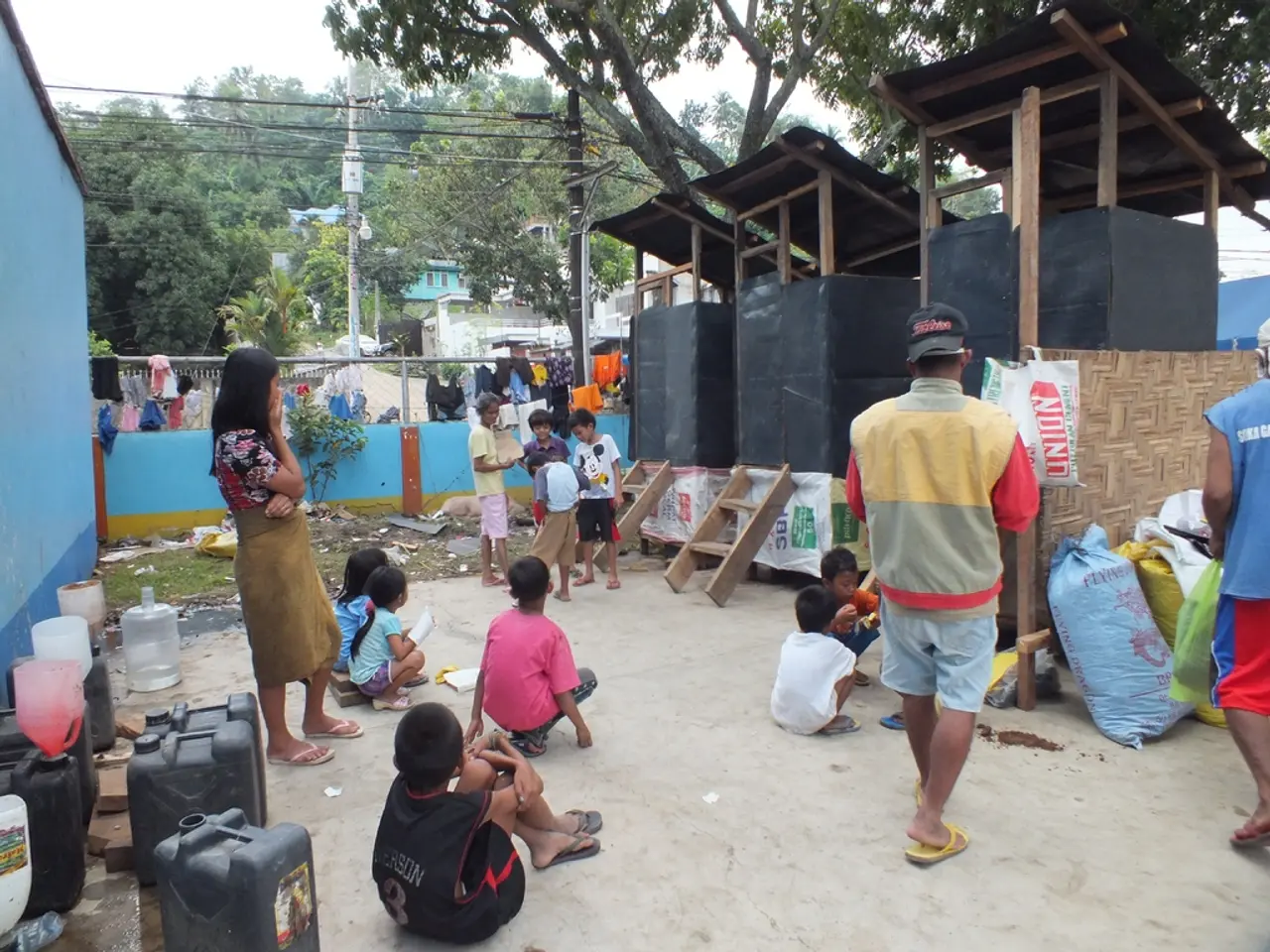Schools' Air Quality: Safeguarding Children with Intellectual and Developmental Disabilities from COVID-19 Threats
The University of Rochester Medical Center, in collaboration with the Mary Cariola Center, conducted a study during the COVID-19 pandemic to investigate the role of airflow and filtration in preventing infections among children with intellectual and developmental disabilities (IDD).
While the study did not provide specific recommendations for schools, it did highlight the importance of good ventilation and filtration systems. The Mary Cariola Center, which serves over 450 students with severe IDDs and complex medical needs, has been proactive in improving ventilation across their campus since the study was conducted.
The study found that classrooms with less efficient MERV-11 filters had higher numbers of total COVID cases, suggesting a link between air filtration and infection rates. To address this, the Center has pursued state funding and started conversations with property owners to make overall improvements to the ventilation systems, aiming to upgrade to high-efficiency MERV-13 filters where possible.
In addition to upgrading filters, the recommendations for improving airflow and filtration in schools to prevent COVID-19 infections include:
1. Enhanced Ventilation and Air Filtration Systems: Install and maintain high-efficiency air filtration systems (HEPA filters) and consider portable air cleaners for areas with limited ventilation. Regular cleaning and maintenance of these systems are also crucial.
2. Increased Ventilation: Open windows when possible and ensure that mechanical ventilation systems are fully functional, maximizing outdoor air intake.
3. Proper Use of Spaces: Limit the number of students in each room and use larger spaces for classes to facilitate social distancing.
4. Regular Cleaning and Disinfection: Implement a rigorous cleaning schedule for high-touch surfaces and areas, using EPA-approved disinfectants.
5. Masking and Personal Protective Equipment (PPE): Encourage the use of masks, especially in areas with poor ventilation, and ensure that staff and students know how to properly wear and manage masks.
6. Monitoring and Testing: Implement regular testing programs for staff and students and monitor for symptoms, having protocols in place for isolation and quarantine.
7. Adaptations for Students with Intellectual and Developmental Disabilities: Provide accessible communication about safety measures and procedures and train staff to support students in maintaining safety protocols.
These recommendations are generally applicable but may need adaptation based on specific studies or local health guidelines. For specific recommendations related to the study at the Mary Cariola Center, it would be best to consult the original research or contact the researchers directly.
Martin Zand, MD, PhD, dean's professor of Medicine and senior associate dean for Clinical Research at the University of Rochester Medical Center, co-led the study and emphasized the importance of filtering or circulating air quickly to reduce the risk of COVID infection. He also highlighted that a combination of approaches, including masking, vaccination, ventilation, and air filtration, is most effective in preventing infections from various viruses.
It's crucial to remember that COVID, like flu and RSV, is primarily spread through the air, and the virus can circulate in the air for up to three hours. By implementing these recommendations, schools can help create a safer environment for all students, especially those with IDDs who may be at heightened risk for COVID infection and may struggle with protective measures like masking and distancing.
In light of the study at the University of Rochester Medical Center, it's clear that investment in high-efficiency air filtration systems, such as MERV-13 filters, and improved ventilation can play a significant role in reducing the spread of respiratory conditions like COVID-19, particularly in schools serving children with intellectual and developmental disabilities (IDD). Additionally, maintaining mental health and overall health-and-wellness during these challenging times may require schools to implement regulations like enhanced cleaning and disinfection, masking, proper use of spaces, and regular monitoring and testing.




